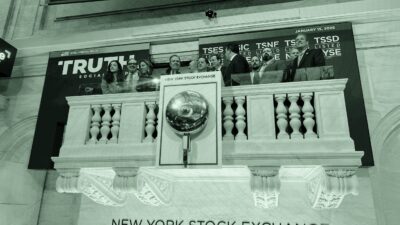Prediction Markets Are Worrying Wealth Managers
While older investors might not be as tuned into prediction markets, some in the wealth industry fear they’re a growing threat to next-generation clients.

Sign up for market insights, wealth management practice essentials and industry updates.
Come on up and place your bets.
It’s not advice that most financial planners would give their clients about managing their portfolios, for sure. But that’s not curbing investors’ interest in prediction-market platforms like Kalshi and Polymarket that use derivatives contracts to enable wagers on outcomes of public events — anything from the winners of the Super Bowl or elections to who will be Time magazine’s Person of the Year. Their rise, especially among younger retail investors, has the financial industry on edge.
“It’s fairly dangerous and reflects the on-going gamification trend,” said Richard Coffin, host of the Plain Bagel YouTube channel and analyst at WDS Investment Management. “There’s clearly a demand for these kinds of platforms, but it’s such a wild west right now with how fast we’re seeing it explode and the lack of regulation.”
Is It Gambling?
Yes? No? It’s complicated. Prediction markets may feel like betting, but because investors can base decisions on data and analysis, they’re not viewed the same as dice rolls or slot machines. They’re also regulated by the Commodity Futures Trading Commission, not state gaming boards, which has caused tension as platforms push deeper into sports. Nevada, Arizona, New Jersey and more have all sent cease-and-desist letters to Kalshi over its sports contracts, yet the platform remains widely available.
Coffin, based in Ontario, Canada, where such markets are banned, sees a stark contrast with the US. “It’s seeing a lot of players do their best to cement their position,” he told Advisor Upside. “Especially with the Donald Trump-era, they’re taking advantage of lax regulation to build out as fast as possible and make it much harder to crack down on them in the future.”
Platforms like Polymarket and Kalshi have already permeated portfolios, while others are only getting started:
- Robinhood launched its prediction markets hub in March, focusing heavily on the NCAA basketball tournament. The unit reached $100 million in annualized revenue faster than any of the company’s other business lines.
- Just this week, eToro, with more than 40 million users globally, announced it will add prediction markets next year.
The trend is spelling trouble for traditional wealth managers. “I just don’t want young people in our country to think gambling on the Monday Night Football game is the same as investing in stocks and bonds,” Charles Schwab CEO Rick Wurster said during the recent Schwab Impact conference.
Double Down. Prediction market users aren’t just young thrill-seekers, though. Many are disillusioned with Wall Street, largely because of the 2008 financial crisis, Coffin said. “Add in GameStop and the narratives around hedge funds controlling the price of stocks, and it’s led to a lot of distrust of traditional investing,” he said. “Those concerns have merit, but they also open people up to being taken advantage of by the alternative.”











